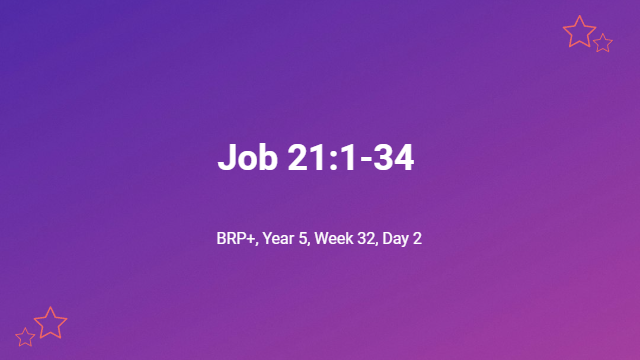Job 21:1-34
Q.1. Did Job agree with Zophar about the wicked? What was their attitude toward God? How did Job distance himself from the wicked? – (Job 21:1-16 c.f. 20:20-29)
Zophar exaggerated the plight of the wicked, and Job questioned its reality. The righteous Job’s suffering was clearly seen, but the wicked often seem to escape God’s chastening – Their houses are safe from fear, and the rod of God is not on them (Job 21:9). Job agreed that though the wicked reject God – They spend their days in prosperity, and suddenly they go down to Sheol (Job 21:13). As for Job, he would have nothing to do with the wicked (Job 21:16).
Q.2. What did he think of Zophar’s claim about the children of the wicked? What was Job’s view of life this side of glory? – (Job 21:17-26 c.f. 20:10; Ecc.7:15-17)
Job questioned Zophar’s contention that – … `God stores away a man’s iniquity for his sons.’ Let God repay him so that he may know it (Job 21:19). God’s judgment is not that consistent in this life. Besides, Job declared – For what does he care for his household after him, when the number of his months is cut off? (Job 21:21). Job contended that life ends about the same for those who enjoy bounty and those who face much bitterness (Job 21:23-26). He acknowledged the mystery of life, known only by God Himself (Job 21:22).
Q.3. Why did Job’s friends align him with those who are wicked? When would he be distinguished from the wicked? – (Job 21:27-34)
Job complained that because he has suffered such extreme reversals in his life, his friends had dismissed him as a wicked man (Job 21:27-29). He charged them with falsely accusing him and failing to comfort him in his sorrow (Job 21:34). He awaited God’s ultimate righteous judgment, in which He would make a distinction between the wicked and himself (Job 21:30).

